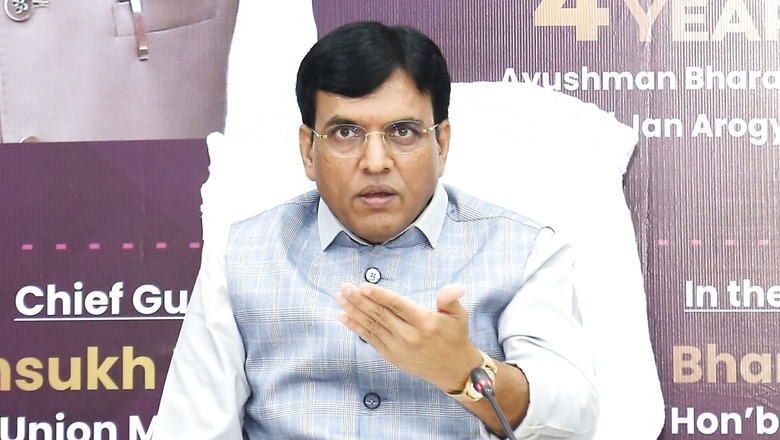
views
Union health minister Mansukh Mandaviya was so livid with an Indian official of one of the international vaccine pharmaceutical firms who came to visit him in 2021 that he did not even offer a chair to him after seeing the proposed documentation of the company’s offer.
A new book, ‘Braving a Viral Storm, India’s Covid-19 Vaccine Story’ written by Aashish Chandorkar and Suraj Sudhir, and published by Rupa Publications, mentions this based on an interview by the authors with Mandaviya last year. India was in discussions with Pfizer and Moderna in 2021 for the supply of these international vaccines but their terms and conditions were not accepted ultimately by India.
The visit
The book recounts an incident when an Indian official of one of the firms paid the minister an introductory courtesy visit. “Mandaviya was livid with this Indian official. He gave him a piece of his mind on the usurious terms and conditions being imposed on India and that too for a very small quantity of vaccine doses relative to the Indian requirement. The Minister did not even offer a chair to this particular visitor,” the book mentions.
“Mandaviya was so enraged with the proposed documentation he had seen that he point-blank asked the Indian official whether it pinched his conscience to impose these terms on the country for the sake of corporate profits,” the book mentions. The authors write that all efforts of international lobbying and getting India to sign a bad deal were resisted by the government, all in national interest.
Logistical issues and conditions
Citing interviews with officials of the health ministry, the book says Indian decision-makers were “ill at ease” with the attitude and language of international vaccine makers whose “signals were lopsided” as they not only wanted to decide the quantity, timing, and price of the supplies but also contractual indemnity from any adverse events and even public assets as collateral pledges.
The book says that even if India swallowed its pride and signed on such clauses, transporting these vaccines to India and maintaining their operating conditions would have been very difficult if not outright impossible. Pfizer designed specialised transport boxes for vaccine transport, each of which weighed about 38 kg, most of it on account of dry ice to keep the vaccines at a temperature of -60 degrees Celsius.
The authors say that federal aviation safety authorities restrict the maximum amount of dry ice a plane can carry as it can overwhelm the aircraft’s cabin pressurisation. Average transport flight for Pfizer vaccines between early to mid-2021 transported 2-5 lakh vaccines. The alternative — sea freight — was also out of the question as ships from Europe to India take 4-6 weeks while Pfizer’s proprietary transport boxes were meant for a 2-week transit duration, the book says.
The authors write that there was pressure from these firms, their domestic lobbyists, and global amplifiers in 2021, as well as opinion pieces were written on why India was doing the wrong thing by not tapping into Pfizer. “Whether these suggestions were made keeping in mind national interests or taken up expressly at the behest of the pharmaceutical firms in violation of Indian healthcare media regulations may never be known,” says the book.
Read all the Latest India News here

















Comments
0 comment